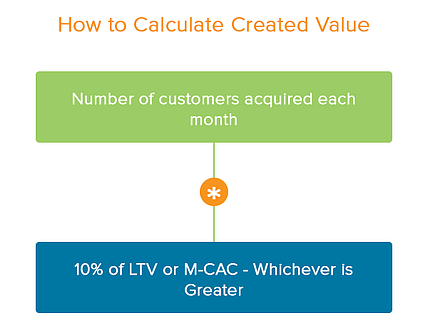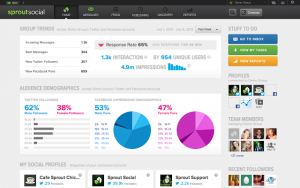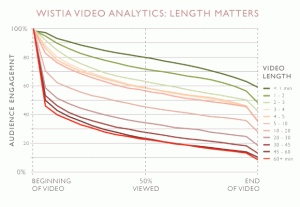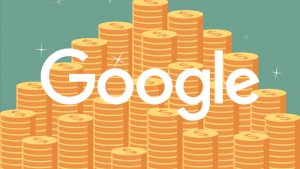In an earlier post, we talked about managing your agency through a downturn. In this guide, we’ll share tips on managing and marketing your clients during a recession.
We might have an economic downturn in the near future. Or we might weather the current storm and witness an economic boom.
It’s tough to say which way the economic winds will blow. The only certainty we have is uncertainty.
Given the current climate, your top priority as an agency is to help your clients survive. Economic downturns are always messy, but they’re far messier for agencies. It’s tough to convince clients to spend on marketing when they’re hemorrhaging customers.
Not only do you have to manage clients, but you also have to restrategize their marketing efforts. Positioning changes during a downturn; old messages of abundance don’t find many takers when incomes drop.
This is a tough balancing act, but, as we’ll discuss below, it is possible to thrive through it.
Managing and Marketing Clients During a Downturn
Your clients are understandably jittery heading into a downturn. They’re uncertain about consumer demand, cash flow, and even the certainty of the downturn itself.
As an agency partner, you have the dual responsibility of retaining their business while also helping them steer through the uncertainties. I recognize that there is an inherent conflict within these goals. Cutting marketing would be an easy (if ineffective) way for clients to stay afloat. But it would also jeopardize your own business.
How do you resolve this internal conflict?
Start, as with most things, by embracing the truth.
1. Be Honest and Upfront
When faced with the prospect of losing clients, a lot of agencies resort to the soothing balm of falsehood than the cold but honest truth. It’s easy to tell clients in a badly affected sector that things will be back to normal soon. But by doing that, you only hurt the client and your long-term reputation in the industry.
Step one, thus, is to do an honest assessment of each client. In particular, focus on:
- How badly the client’s sector will be affected by the downturn
- How the client and their competitors faced the last few downturns
- How would any extraneous factors affect the client’s recovery
I encourage you to do this for each client. Don’t sugarcoat the truth. If your portfolio is filled with clients in the travel industry, it won’t do either you or your clients any good to tell them that they will recover soon.
It’s also easy to fall for the most optimistic projections of recovery – no one likes to be the bearer of bad news. Instead of doing that, offer clients a range between the worst and best-case projections.
While you’re doing this, also be honest about your business. Tell clients plainly how the downturn will affect you and what steps you’re taking to mitigate it. Think of it as opening the kimono – the more honest you are, the more trust you’ll build in the relationship.
2. Become a “Single Source of Truth”
The current economic downturn is unprecedented in that it is precipitated by a singularly unique event in recent history – the COVID-19 pandemic.
Your clients are likely bombarded with tons of news – real or fake – about this virus and the impact it will have on people and businesses.
Your role as an agency partner during this period is to be the “single source of truth” about the virus and the situation surrounding it. Become the source of authoritative data and insight in a sea of noise and you will build trust.
If you’re going to adopt this approach, make sure to:
- Focus only on verified information from authoritative sources. Ignore all anecdotal evidence, rumors, and unreliable sources
- Focus on positive stories. However, this doesn’t mean that you should be overly optimistic – share negative stories too if you think they are relevant to the client’s business
- Emphasize hard data and numbers – for the pandemic as well as the economy.
You don’t have to start a daily COVID-19 newsletter – that’s not the business you’re in.
But you should make it a point to share relevant stories and data with clients regularly. The more the client is affected directly by the pandemic, the more you should share.
For information regarding the virus, some of the most authoritative sources are university websites such as this John Hopkins University tracker, and government agencies such as CDC.
If you have a lot of clients who are likely going to be affected by COVID-19, you can even consider creating a dedicated resource page, such as this one made by Harmelin Media:
Clients – current and potential – will trust you to be the authoritative voice on this topic and turn to you for advice.
3. Manage Expectations
When faced with an uncertain economic situation, businesses instinctively cut costs.
This usually means that marketing agencies are among the first to take a hit. It’s hard to convince clients to continue spending on ads when they have limited demand.
In fact, in a survey of ad agency execs, the majority said that they expect the impact of the pandemic to be worse than the 2008 crisis.
It doesn’t help that any appeal to maintain or even increase marketing can come across as self-serving. After all, you will benefit from any increase in spending. When no one is marketing, the only company that bites the short-term bullet and continues advertising will win away customers from competitors.
Counter this by pointing to historical data and studies – such as this and this – to prove how increased spending can win more market share. At the same time, you should proactively manage your client’s expectations. If they’re used to +10% QoQ growth, tell them plainly that they won’t hit the same numbers during a downturn. If they get $ 2 in ROI on every $ 1 spent, this number will take a hit – at least in the short-term.
Instead, focus on long-term results. Tell them how, should they continue to invest in marketing, they will win more market share and customers. Or how $ 1 in marketing would yield 90 cents right now, but might return $ 5 a year later.
The more you can get clients to see marketing as an “investment” and not a “spending”, the better you will manage their expectations.
4. Rework Your Contracts and Offerings
Year-long retainers and hourly billing don’t always suit clients struggling with financial uncertainty.
One way to mitigate this is by reworking your contracts and offerings. An obvious tactic is to offer discounts, but you can also change the way you price your services or bill clients.
For example, clients might feel more comfortable with a monthly contract they can cancel anytime instead of a quarterly or half-yearly retainer. In a downturn, they might not be sure if they will have regular cash flow – a monthly retainer gives them “cancel anytime” peace of mind.
Another tactic is to change your pricing strategy. Instead of hourly billing, you can experiment with performance-based or value-based pricing to reassure anxious customers.

One way to bill clients is to charge them on “created value” – calculated as shown above
You can even try productizing some of your cheaper services to give your smaller clients lower rates with the “cancel anytime” peace of mind. It also ensures that clients don’t get “invoice shock” with the same amount every month.
If all else fails, you can always go the discount route. But I wouldn’t recommend that as the first course of action.
Whatever you do, make sure to retain clients. It’s much easier to keep an existing client than to win a new one, especially in a downturn.
5. Create 3, 6, and 12-Month Marketing Plans
Economic downturns rarely happen overnight. Neither do they disappear overnight. Any client management plan must be spread out over several months.
In the current situation, your first few months will be spent adjusting to the new reality of COVID-19 and the social distancing necessary to overcome it.
In the next few months, you might see a return to normalcy. However, this new normal might have changed – work from home could become more commonplace and consumption habits might change.
Finally, within a year, you might expect some recovery. Your 12-month plan, thus, should focus on taking advantage of green shoots and increase marketing spend.
Here are some questions to consider when creating your 3, 6, and 12-month plans:
3 months:
- How are your clients and their customers responding to the current situation? What changes are they bringing to their work habits?
- How will demand drop with the changes in how people live and work? What can you do to maintain it during this period?
- How are people changing their consumption habits? What new media platforms and channels can you incorporate into your marketing mix?
For instance, due to social distancing and work from home norms, you’re more likely to get more eyeballs on YouTube than on radio advertising. Change your marketing approach accordingly.
6 months:
- How much of the changed behavior over the last few months is here to stay? What temporary rituals and practices are likely to become permanent?
- What is the emerging “new normal”? How can a brand take advantage of it?
- How can a brand help its customers maintain and grow their recently acquired habits and passions?
- What can a brand do to help people revisit and renew older abandoned plans?
For instance, if you’re selling to avid travelers, a lot of your customers might tentatively revisit their travel plans in six months. Your marketing plan, thus, should focus on rekindling their passion and providing a way to get back into the air.
12 months:
- What was the brand’s response to the crisis? How can you parlay it into building a more trustworthy brand?
- What steps can a brand take to help consumers ease back into their old lives and routine?
- How should you refocus your marketing efforts to tap into the newfound positivity and exuberance after months of downturn?
Keep in mind that these plans are only tentative – the downturn might be shorter or longer than you expect. Be ready to change your plans accordingly.
6. Change Your Messaging
What do people really care about during a downturn?
If you said “friends and family”, you’d be completely right.
Priorities change when your financial future is uncertain. Luxurious vacations and island getaways become passe; the comfort of family and friends is cherished.
This is the perfect time to take stock of your clients’ messaging and positioning. Analyze what you’re currently focusing on in your marketing collateral. Rework everything to emphasize “recession-proof” ideas such as:
- Quality time spent with loved ones
- Connectedness and togetherness
- Family values, rituals, and traditions
Essentially, focus on anything that is deemed stable and comforting during uncertain times. Home-cooked food vs fancy dinners, a family dinner table vs a night out at a bar, a comforting hobby vs an adventurous vacation – choose whatever evokes “security” to the brand’s audience.
7. Change Your Marketing Mix
Any economic downturn changes media consumption patterns. Discretionary spending takes a hit. Cable TV goes out, basic TV comes in. Magazine subscriptions get discarded. Movie nights drop from once a week to once a month.
In an economic downturn caused by an unprecedented lockdown, consumption patterns are even more heavily impacted. Online media consumption is way up while traditional media is struggling.
Nothing shows the sheer impact of the lockdown more than headlines such as these
Your marketing mix needs to keep up with these changes.
Evaluate top marketing channels for each of your clients’ brands. Ask yourself:
- Is this channel going up or down?
- If it is going up, what are the demographics of the new audience?
- Can you negotiate better rates from struggling channels?
Remember that downturns are a great time to lock in low rates from media companies struggling with cash flow. If you know that radio advertising is down, you can use this to your advantage by getting lower rates and more airtime with fewer competitors around.
Business & Finance Articles on Business 2 Community
(47)








